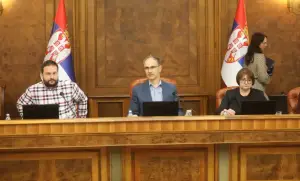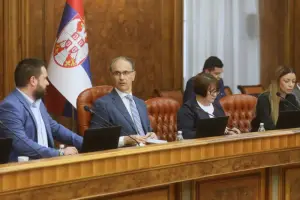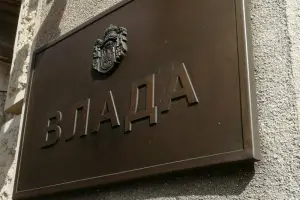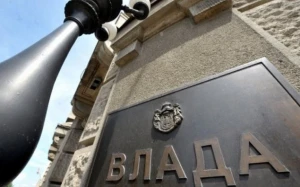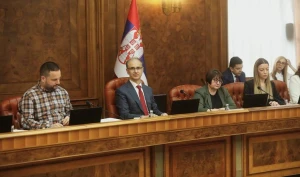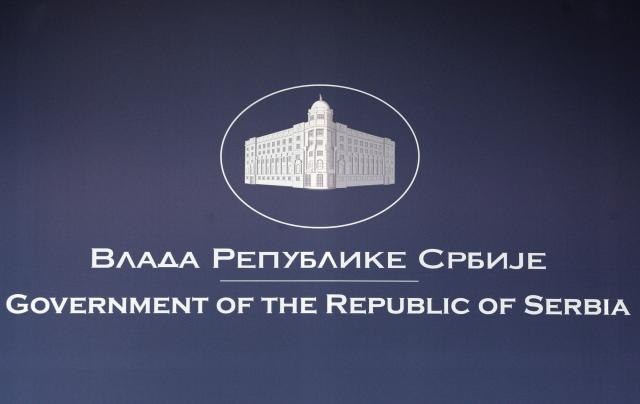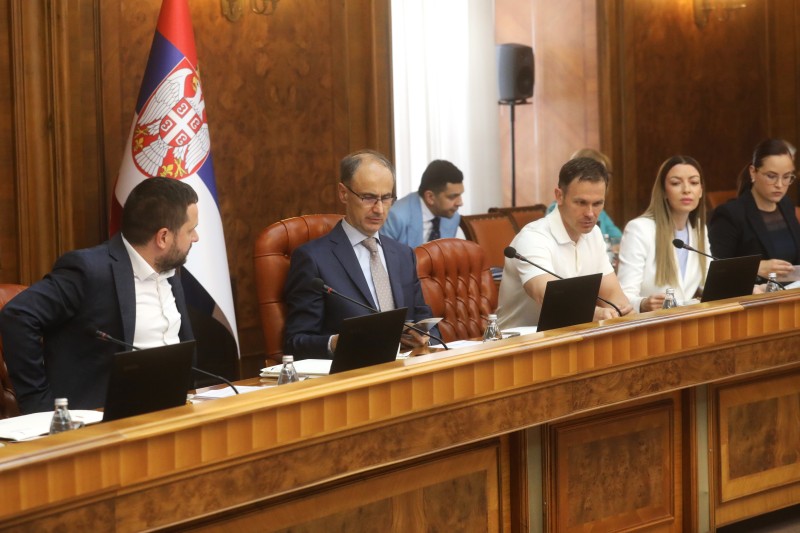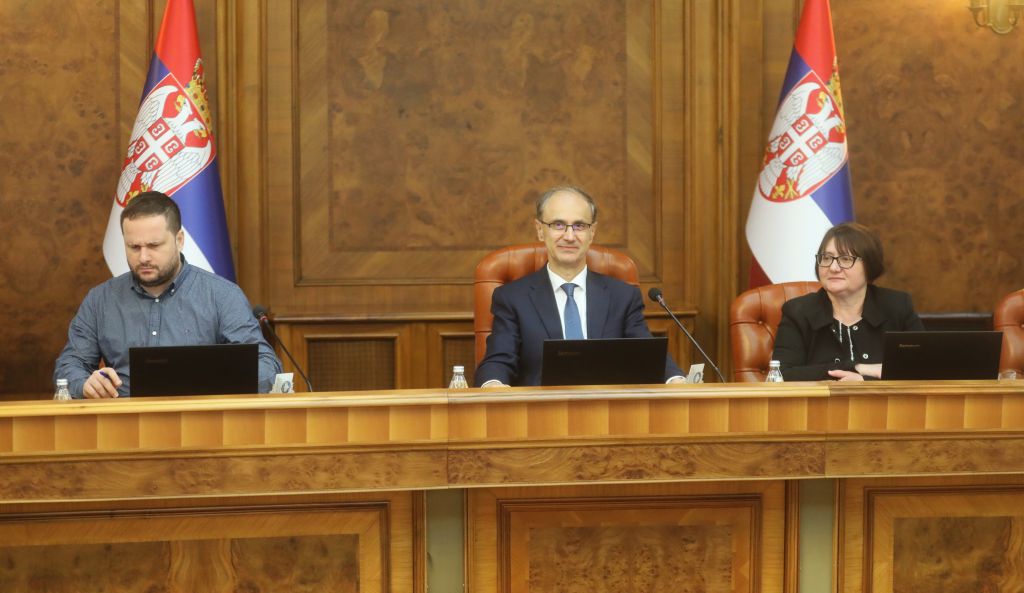Q:
A:
Patriarch Pavle sends letter to Kostunica regarding case of Bishop Filaret
Belgrade,
6 September 2007
Serbian Prime Minister Vojislav Kostunica received today a letter by His Holiness Serbian Patriarch Pavle regarding the ban on Bishop Filaret’s entry into Montenegro.
The Serbian government’s official website presents the letter in full.
“Honourable Mr. Prime Minister,
As you already know, Bishop Filaret has been on the border-crossing between Serbia and Montenegro since August 28 due to the ban imposed on his entry into Montenegro.
In order to acquaint you better with this unfortunate event, I am writing to you about it in chronological order:
On July 8, 2007, Montenegrin border police denied Bishop Filaret entry into Montenegro at the Rance border-crossing. On August 2, 2007, at the celebration of St. Elias’ Day at Ilija’s Hill near Pljevlja, Bishop Filaret was withheld, denied free movement and brought to the Rance border-crossing in police custody, where he was ordered to leave Montenegro and was also informed that he is henceforth forbidden entry into Montenegro. On August 28, 2007, Bishop Filaret was denied entry into Montenegro by the Montenegrin border police at the Rance border-crossing.
In all the abovementioned cases, Montenegrin state organs did not explain to Bishop Filaret the reasons or bases for the said actions taken against him or handed over a single written statement on the matter.
If Bishop Filaret had been given any such legal document, he would have been fully and accurately aware of the reasons for the actions undertaken, and it would have allowed him to launch an appeal, complaint or at least create conditions for undertaking a suitable course of action to protect his rights which were violated.
At the same time, the media broadcast the statement according to which the reason for the ban on his entry into Montenegro was the fact that the Bishop’s name was on the list of persons suspected of aiding war crime indictees.
In the absence of any kind of legal document stating the restriction of the Bishop’s freedom of movement and entry into Montenegro, it is indisputable that Bishop Filaret was not allowed to carry out his duties in the Pljevlja area of his eparchy, on the territory which lies in Montenegro, which was done by a violation of the rights guaranteed by effective positive regulations and international documents.
Numerous legal documents confirm the validity of the said conclusion:
Article 13 of the International Covenant on Civil and Political Rights envisages that a foreigner who is legally present on the territory of one of the signatory countries could be deported only as a result of a decision taken by executive authorities and in accordance with the law. The same article guarantees that the person must be given an opportunity to state the reasons against deportation and the case must be heard by competent authorities. Article 18 of the same document envisages freedom of religious belief. Article 13 of the Universal Declaration of Human Rights envisages the freedom of movement, and Article 18 envisages the freedom of religious belief, which in turn envisages that this right includes the freedom that a man, alone or together with others, may publicly or privately manifest his faith or convictions through preaching traditions, prayers and rituals. Article 9 of the European Convention on Human Rights and Essential Freedoms envisages the freedom of religious belief, that is, that this freedom may be restricted only by limitations defined by law and necessary in a democratic society in the interest of public safety, protection of public order, health, public morals and freedoms of others. Article 11 of the Montenegrin Constitution envisages the freedom of practicing religious rituals, and Article 28 of the same constitution guarantees the right to freedom of movement which can be restricted only if it is necessary for conducting legal procedures, prevention of spreading infectious diseases for state defence, while Article 34 guarantees the freedom of religious belief and public and private confession of a religious belief.
The stance presented in the media that the reason for banning entry into Montenegro is the fact that the Bishop’s name is on the list of persons who aided war crime suspects is legally unfounded.
Above all, it is an indisputable fact that Bishop Filaret was never accused by any state organ of any country for helping persons who have committed crimes.
It is also an indisputable fact that a criminal or any other procedure, conducted against accessories to criminals, has never been filed against the Bishop.
In the absence of any legal act according to which the ban on entering Montenegro could be established, the legal significance of actions taken by Montenegrin state organs regarding the list from the Hague Tribunal’s prosecution remains absolutely unclear.
That list, concealed from the public and from persons who are allegedly mentioned in it, cannot and must not be above the rights guaranteed by international agreements and valid domestic regulations.
Honourable Mr. Prime Minister, in the hope that you will have full understanding of the gravity of this case and that with the authority that you have prevent secret lists, made according to secret criteria and in secret procedures, from being beyond the rights guaranteed by international agreements, please accept my most sincere greetings,” concludes the letter by Patriarch Pavle.
“Honourable Mr. Prime Minister,
As you already know, Bishop Filaret has been on the border-crossing between Serbia and Montenegro since August 28 due to the ban imposed on his entry into Montenegro.
In order to acquaint you better with this unfortunate event, I am writing to you about it in chronological order:
On July 8, 2007, Montenegrin border police denied Bishop Filaret entry into Montenegro at the Rance border-crossing. On August 2, 2007, at the celebration of St. Elias’ Day at Ilija’s Hill near Pljevlja, Bishop Filaret was withheld, denied free movement and brought to the Rance border-crossing in police custody, where he was ordered to leave Montenegro and was also informed that he is henceforth forbidden entry into Montenegro. On August 28, 2007, Bishop Filaret was denied entry into Montenegro by the Montenegrin border police at the Rance border-crossing.
In all the abovementioned cases, Montenegrin state organs did not explain to Bishop Filaret the reasons or bases for the said actions taken against him or handed over a single written statement on the matter.
If Bishop Filaret had been given any such legal document, he would have been fully and accurately aware of the reasons for the actions undertaken, and it would have allowed him to launch an appeal, complaint or at least create conditions for undertaking a suitable course of action to protect his rights which were violated.
At the same time, the media broadcast the statement according to which the reason for the ban on his entry into Montenegro was the fact that the Bishop’s name was on the list of persons suspected of aiding war crime indictees.
In the absence of any kind of legal document stating the restriction of the Bishop’s freedom of movement and entry into Montenegro, it is indisputable that Bishop Filaret was not allowed to carry out his duties in the Pljevlja area of his eparchy, on the territory which lies in Montenegro, which was done by a violation of the rights guaranteed by effective positive regulations and international documents.
Numerous legal documents confirm the validity of the said conclusion:
Article 13 of the International Covenant on Civil and Political Rights envisages that a foreigner who is legally present on the territory of one of the signatory countries could be deported only as a result of a decision taken by executive authorities and in accordance with the law. The same article guarantees that the person must be given an opportunity to state the reasons against deportation and the case must be heard by competent authorities. Article 18 of the same document envisages freedom of religious belief. Article 13 of the Universal Declaration of Human Rights envisages the freedom of movement, and Article 18 envisages the freedom of religious belief, which in turn envisages that this right includes the freedom that a man, alone or together with others, may publicly or privately manifest his faith or convictions through preaching traditions, prayers and rituals. Article 9 of the European Convention on Human Rights and Essential Freedoms envisages the freedom of religious belief, that is, that this freedom may be restricted only by limitations defined by law and necessary in a democratic society in the interest of public safety, protection of public order, health, public morals and freedoms of others. Article 11 of the Montenegrin Constitution envisages the freedom of practicing religious rituals, and Article 28 of the same constitution guarantees the right to freedom of movement which can be restricted only if it is necessary for conducting legal procedures, prevention of spreading infectious diseases for state defence, while Article 34 guarantees the freedom of religious belief and public and private confession of a religious belief.
The stance presented in the media that the reason for banning entry into Montenegro is the fact that the Bishop’s name is on the list of persons who aided war crime suspects is legally unfounded.
Above all, it is an indisputable fact that Bishop Filaret was never accused by any state organ of any country for helping persons who have committed crimes.
It is also an indisputable fact that a criminal or any other procedure, conducted against accessories to criminals, has never been filed against the Bishop.
In the absence of any legal act according to which the ban on entering Montenegro could be established, the legal significance of actions taken by Montenegrin state organs regarding the list from the Hague Tribunal’s prosecution remains absolutely unclear.
That list, concealed from the public and from persons who are allegedly mentioned in it, cannot and must not be above the rights guaranteed by international agreements and valid domestic regulations.
Honourable Mr. Prime Minister, in the hope that you will have full understanding of the gravity of this case and that with the authority that you have prevent secret lists, made according to secret criteria and in secret procedures, from being beyond the rights guaranteed by international agreements, please accept my most sincere greetings,” concludes the letter by Patriarch Pavle.

